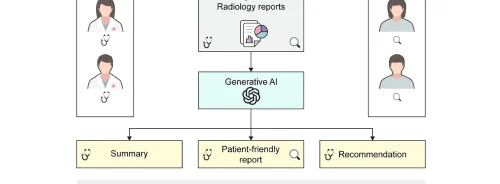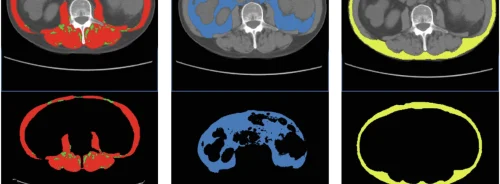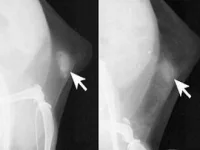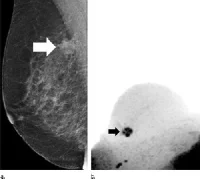Paying women to have mammograms is unethical, according to a Viewpoint article published in JAMA by an expert from the Perelman School of Medicine at the University of Pennsylvania. Insurance companies typically offer cash payments ($10 to $250) for mammography completion. However, such incentives are "ethically troubling," says the article author Harald Schmidt, PhD, an assistant professor of Medical Ethics & Health Policy.
Instead, incentives should be offered to women to use evidence-based decision aids to decide if they want a mammogram, even if this policy likely averts fewer breast cancer deaths overall, Dr. Schmidt says.
He writes, “Incentives for having mammograms are ethically troubling. Women need to strike a delicate balance in assessing the benefits and risks of mammograms. In the case of smoking cessation or weight loss programmes, providing incentives supports behaviour change. But with breast screening, mammograms can unhelpfully short-circuit decision-making.”
The author points out that incentives can wrongly signal mammograms as beneficial only, and offers several reasons for concern:
Dr. Schmidt noted that in a study assessing decision aids, women receiving brochures which explicitly enumerated risks and benefits of mammograms (such as the actual number of false positives that patients received) were less inclined to have mammograms — 74 percent vs. 87 percent — than women who received brochures simply discussing the risk of false positives, but without actual figures to illustrate the scope of overtreatment.
True consent demands an understanding of an intervention’s risks as well as benefits, according to Dr. Schmidt, adding it is unethical to omit pertinent information, such as false-positive rates and information on overtreatment.
“Incentives should support, and not distract — or worse, undermine — informed decision-making," Dr. Schmidt writes. “Less educated, lower-income groups face greater challenges because incentives, especially larger financial ones, have more salience for them and may unhelpfully shortcut informed decision-making."
Source and image credit: Perelman School of Medicine, University of Pennsylvania
Instead, incentives should be offered to women to use evidence-based decision aids to decide if they want a mammogram, even if this policy likely averts fewer breast cancer deaths overall, Dr. Schmidt says.
He writes, “Incentives for having mammograms are ethically troubling. Women need to strike a delicate balance in assessing the benefits and risks of mammograms. In the case of smoking cessation or weight loss programmes, providing incentives supports behaviour change. But with breast screening, mammograms can unhelpfully short-circuit decision-making.”
The author points out that incentives can wrongly signal mammograms as beneficial only, and offers several reasons for concern:
- Although screening reduces chances of dying from breast cancer, there are screened women who nonetheless die from the disease.
- Some cancers identified in screening never develop into lethal tumours. “These cases of overdiagnosis regularly lead to overtreatment,” Dr. Schmidt says. This includes partial or full surgical breast-removal and hormone-, radio-, or chemotherapy.
- All participants risk periods of worry due to false positives and biopsy complications.
Dr. Schmidt noted that in a study assessing decision aids, women receiving brochures which explicitly enumerated risks and benefits of mammograms (such as the actual number of false positives that patients received) were less inclined to have mammograms — 74 percent vs. 87 percent — than women who received brochures simply discussing the risk of false positives, but without actual figures to illustrate the scope of overtreatment.
True consent demands an understanding of an intervention’s risks as well as benefits, according to Dr. Schmidt, adding it is unethical to omit pertinent information, such as false-positive rates and information on overtreatment.
“Incentives should support, and not distract — or worse, undermine — informed decision-making," Dr. Schmidt writes. “Less educated, lower-income groups face greater challenges because incentives, especially larger financial ones, have more salience for them and may unhelpfully shortcut informed decision-making."
Source and image credit: Perelman School of Medicine, University of Pennsylvania
References:
Schmidt H (2015) The Ethics of Incentivizing Mammography Screening.
JAMA. September 8, 2015;314(10):995-996. doi:10.1001/jama.2015.8852
Latest Articles
healthmanagement, breast cancer screening, ethics, decision-making, overdiagnosis
Paying women to have mammograms is unethical, according to a Viewpoint article published in JAMA by an expert from the Perelman School of Medicine at the University of Pennsylvania. Instead, incentives should be offered to women to use evidence-based deci










